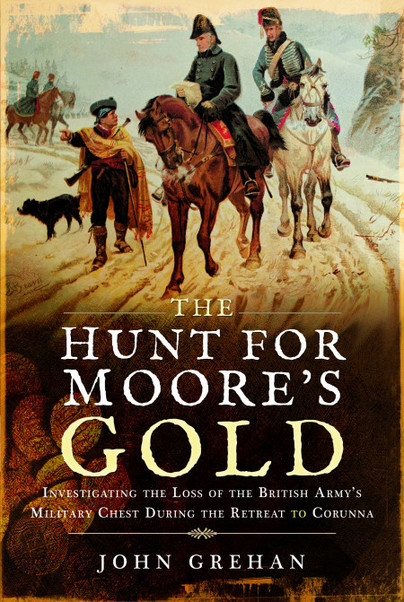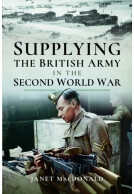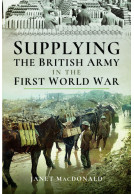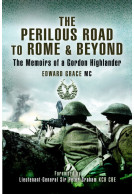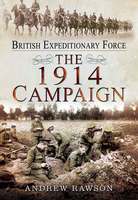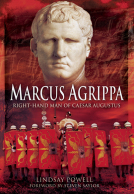Sir John Moore (Hardback)
The Making of a Controversial Hero
Imprint: Pen & Sword Military
Pages: 276
Illustrations: 20
ISBN: 9781473833944
Published: 15th August 2016
(click here for international delivery rates)
Need a currency converter? Check XE.com for live rates
| Other formats available - Buy the Hardback and get the eBook for free! | Price |
|---|---|
| Sir John Moore ePub (12.3 MB) Add to Basket | £6.99 |
Sir John Moore is perhaps the second most famous British soldier of the Napoleonic Wars after the Duke of Wellington, yet his remarkable career has been neglected in comparison to his celebrated contemporary. His death in battle at Corunna overshadows the wide range of his earlier campaigns and his achievements as an innovative soldier. Janet Macdonald’s fluently written and insightful biography focuses on the development of his character as well as his career as a commander. From it emerges a many-sided portrait of a fascinating man and an outstanding soldier, a key figure in the history of the British army.
Admired by his peers but distrusted by his political masters, Moore was a controversial figure. He is best known for saving the British army in Spain by leading the retreat to Corunna, but he is also credited with developing the training system that enabled Wellington’s army to beat the French in Spain and at Waterloo. Janet Macdonald’s account will rekindle interest in a leading actor in the struggle against the French revolutionary and Napoleonic armies.
This is a good readable biography of an important British commander of the Napoleonic Wars, casting a light on the less familiar parts of this career.
History of War
Read the full review here.
Janet Macdonald’s fluently written and insightful biography focuses on the development of Sir John Moore’s character as well as his career as a commander. From it emerges a many-sided portrait of a fascinating man and an outstanding soldier, a key figure in the history of the British army.
Pennant, Forces Pension Society
Admired by his peers but distrusted by his political masters, Moore was a controversial figure. He is best known for saving the British army in Spain by leading the retreat to Corunna, but he is also credited with developing the training system that enabled Wellington’s army to beat the French in Spain and at Waterloo. Janet Macdonald’s account will rekindle interest in a leading actor in the struggle against the French revolutionary and Napoleonic armies.
As featured in
Gloire & Empire no.69
The author of this new biography is of the opinion that Lieutenant General Sir John Moore (1761-1809) was perhaps the second most famous British soldier of the Napoleonic Wars after the Duke of Wellington, but feels that his varied and remarkable career has been somewhat neglected in comparison to that of the Duke. Sir John’s death in battle at Corunna 1809 overshadows the wide range of his earlier campaigns and his achievements as an innovative soldier, a key figure in the history of the British army. Handsome and heroic, Sir John was the epitome of an army officer in the years leading up to the Peninsular War (1809-1814). He served in several theatres of war including the American War of Independence, the rebellion in Ireland, Holland, Egypt and the West Indies, receiving a number of serious wounds in the process. He is probably best known for saving the British army in Spain by leading the retreat to Corunna, but he is also credited with establishing Shorncliffe army camp and there developing the light infantry training system that enabled Wellington’s forces to beat the French in Spain and then in Belgium. The text is supported by 21 monochrome illustrations and there are four appendices; Army Structure During the Napoleonic War; Sir John Moore’s Will; Charles Wolfe’s Poem ‘The Burial of Sir John Moore at Corunna’; Sir John Moore’s Letter, Corunna 13 January 1809, plus text notes, a bibliography and an index. The layout of the book sees each page full of text, requiring some continued close attention on the part of the reader, but it is well worth the effort. A most interesting addition to the Napoleonic bookshelf.
Stuart Asquith, author
About Janet Macdonald
Janet Macdonald has published books on numerous subjects. Her first book on naval history was Feeding Nelson’s Navy: The True Story of Food at Sea in the Georgian Era; her second, the British Navy’s Victualling Board, 1793-1815: Management Competence and Incompetence. She took her MA in Maritime History at the Greenwich Maritime Institute, London, and her PhD at King’s College London, where she was awarded a Laughton Scholarship. Her thesis was on the administration of naval victualling. Her most recent books are From Boiled Beef to Chicken Tikka: 500 Years of Feeding the British Army, Sir John Moore: The Making of a Controversial Hero and Horses in the British Army 1750-1850.
History abounds with unresolved puzzles and unanswered questions, none more so than that of the loss of the British Army’s military chest during the retreat to Corunna in 1809. Sir John Moore’s small force had dared to attack Marshal Soult’s II Corps isolated in the north of Spain. But before Moore could pounce on the unsuspecting French corps, he learnt that the Emperor Napoleon, at the head of an overwhelming body of troops, was bearing down on the British force, hoping to cut it off from the sea and its only avenue of escape. A desperate race for the coast then began, with the French…
By John GrehanClick here to buy both titles for £50.00








